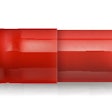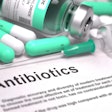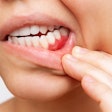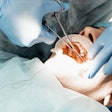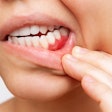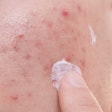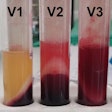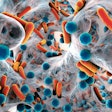
How many times has this happened to you: Your hygienist tells you that your patient's gums are bleeding and before you can even respond, the patient says something to the effect of "Just give me a prescription and be done with it."
Well, that may treat the immediate symptom of bleeding gums, but it hardly goes to the cause of the disease.
Antibiotic
 Alvin Danenberg, DDS.
Alvin Danenberg, DDS.A prescribed antibiotic may kill some of the offending bugs around the teeth that are causing the acute infection of bleeding gums. But this medicine will also kill hundreds of species of beneficial bacteria in their mouth and thousands of species of beneficial bacteria in their gut -- all of which we need for our bodies to function in a healthy state.
I talk with my patients about understanding that their bleeding gums are the result of various factors. Just like any manifestation of disease, we would be better served if the actual cause of the disease was determined and corrected, rather than just taking a pill to deal with the symptoms. The idea is to prevent the disease from coming back in the future.
Reducing the out-of-control bacteria may be the first treatment, but I remind patients that follow-up treatment is necessary to remove the underlying causes.
3 suggestions
Which brings us back to the original concern: Your patient has bleeding gums. What can you do right away to stop it?
1. Essential oils
These oils have antimicrobial properties. A potent essential oil is oil of oregano. You could add two drops of oil of oregano to 1 teaspoon of coconut oil and swish this in your mouth for about a minute and then spit out. Do this four times a day for a week.
2. Hydrogen peroxide
Sometimes a mouthrinse of diluted hydrogen peroxide (1.5% hydrogen peroxide) used four times a day for a period of one week may help reduce the inflammation. I tell my patients they can dilute the 3% hydrogen peroxide they can purchase at the drugstore and dilute it or use an alcohol-free, over-the-counter, 1.5% hydrogen peroxide solution that is commercially available. I also make sure to remind them that using hydrogen peroxide for more than a week could increase the potential for a yeast infection and soft-tissue damage.
3. Antibiotics and probiotics
Sometimes a prescribed antibiotic is necessary if the acute infection is aggressive. I tell my patients that if they need to take an antibiotic, they should also take a probiotic and continue taking it for several weeks thereafter. Probiotics help restore healthy bacteria in your gut and your mouth. I also talk about what they eat and recommend live-culture fermented vegetables and unsweetened plain yogurt to help support the good bacteria in their mouth and body.
I also tell patients that it is critical that they continue to see a dental professional who can diagnose gum diseases properly. This professional also needs to understand the intricate relationships between nutrition and lifestyle factors and other contributing factors that caused the bleeding gums.
Proper treatment in its proper sequence is important to rid your patients of the potentially health-damaging infection of gum disease.
Alvin Danenberg, DDS, practices at the Bluffton Center for Dentistry in Bluffton, SC. He is also on the faculty of the College of Integrative Medicine and created its integrative periodontal teaching module. He also spent two years as chief of periodontics at Charleston Air Force Base earlier in his career. His website is drdanenberg.com.
The comments and observations expressed herein do not necessarily reflect the opinions of DrBicuspid.com, nor should they be construed as an endorsement or admonishment of any particular idea, vendor, or organization.








